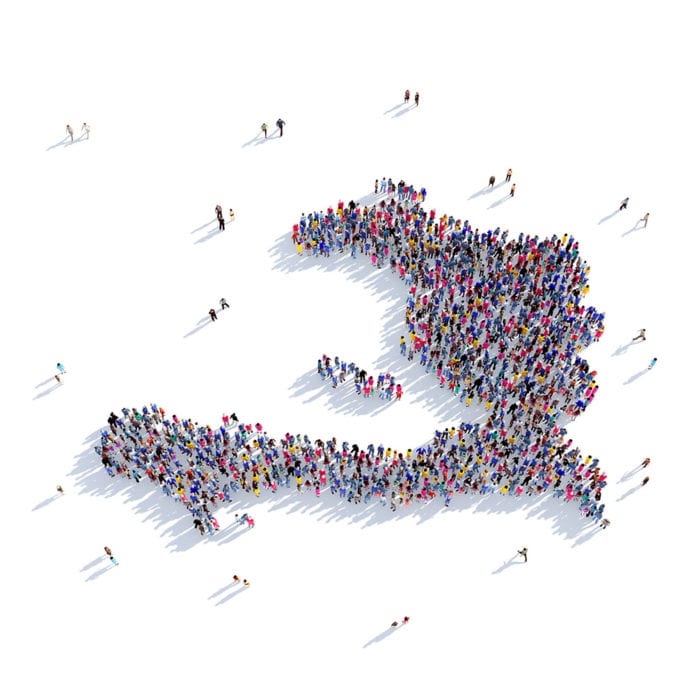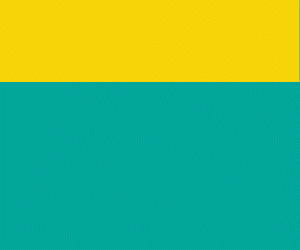Haitians are the citizens of Haiti, which is the country on the western portion of Hispaniola island in the Caribbean Sea. The total population of the country is around 10.8 million people as of 2018. It is estimated that over 50% of all Haitians currently living in Haiti are under the age of 20. The reasons for this are due to emigration and premature death.
Since there are very few economic opportunities for the citizens of Haiti, it has caused about 2.5 million Haitians to move to other countries and find better paying jobs in them. The number one country where Haitians move to is the United States. Why not? The state of Florida in the United States is adjacent to the Caribbean. It is easy for Haitians to travel to Florida because it is such a short trip.
Of course, the United States offers Haitians a much better life than they could ever get in their own country. That is why roughly 929,000 Haitians currently live in the United States. It gives them a chance to give their children a decent education and to own a good home in a decent environment with fantastic opportunities. There are some Haitians even marrying and having children with Americans of all different races and ethnicities, which only further alters the bloodline.
The Dominican Republic is the second most popular country to experience Haitian immigration. There are about 800,000 Haitians living in the Dominican Republic for a few good reasons. First, the Dominican Republic is Haiti’s neighbor country on the island of Hispaniola. It is a very simple trip for poor Haitians who want to migrate to a better country. Second, the Dominican economy is far superior to Haiti’s economy. In fact, the Dominican Republic has the greatest economy out of any other country in the Caribbean.
Below is a comprehensive list of the top 10 countries with the biggest Haitian population:
1) Haiti – 10.6 million
2) The United States – 929,000
3) The Dominican Republic – 800,000
4) Cuba – 300,000
5) Chile – 186,000
6) Canada – 165,100
7) The Bahamas – 80,000
8) France – 62,400
9) Brazil – 51,000
10) Guyana – 33,500
You’ll notice most of the Haitians reside in the Caribbean and Americas. The Haitians who live in France may do so because of their French ancestry in Haiti. After all, the two official languages of Haiti are Haitian Creole and French. You will learn more about why Haitians study French as you read about the history of the Haitian people below.
The History of the Haitian People
Haitians are what you would call an ethnonational group of people. In other words, they have mixed ethnicity because of the country’s history with slavery hundreds of years ago. Before white European settlers colonized the Caribbean island of Hispaniola in 1625, it was inhabited by the Taino people. They are believed to have been a mixture of South Americans and Native Americans.
Everything changed after Spanish explorers came to the island and enslaved the Taino to mine for gold within the island’s mountainous terrain. Most of the Taino people died from over exhaustion and lack of proper nutrition. By that point, the gold had all been stripped from the island so the Spaniards just left. The Taino were pretty much gone from the island entirely.
One hundred years later, French explorers came to Haiti and established a settlement. Since there were no local inhabitants anymore, they brought African slaves there instead. The French forced the African slaves to work the plantations and crop fields for them. Meanwhile, many of the French slaveowners had children with the African slave women. This created a whole new group of Haitians on the island called mulattoes.
The mulattoes were mixed-race Haitians of European and African ancestry. They usually had special privileges during the slavery area of Haiti because one of their parents was a white slaveowner or landowner. As the son or daughter of a white person, the mulattoes were not made into slaves. Instead, they were given an upper-class education with the chance to go far in life.
Other Interesting Facts About Haitians
Most Haitians live in the coastal valleys, coastal plains, and urban areas of Haiti. On average, there are about 350 residents for every 900 square miles (350 square kilometers) of land. Approximately 95% of Haitians are black, while the other 5% are mixed race.
The bloodline of mixed-race Haitians might include French, English, Spanish, Arab, Asian and Indian. It wasn’t just the days of slavery that caused the Haitian demographics to change. It was also all the immigration that took place in the country during the First and Second World Wars.
Below are some statistical facts about Haiti that you might find interesting:
- One baby is born every two minutes
- One person dies every six minutes
- Only 4.21% of the population is 65 years old or older
- 53.38% of the population is 24 years of age or younger.
- 58.70% of the population follow the Roman Catholic religion.
- The life expectancy for males is about 62 years.
- The life expectancy of females is about 67 years.
- The two primary languages are French and Haitian Creole; the secondary language is English
- 300,000 Haitian children are estimated to be restaveks. When parents are too poor to support their children, they send them to work in someone else’s house in exchange for money. Children forced to work to support their parents are called restaveks.



